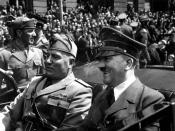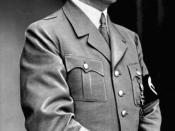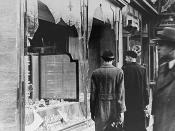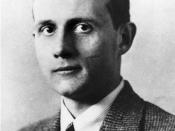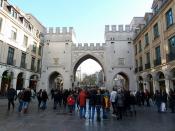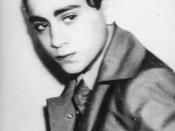Kristallnacht Kristallnacht, or "night of broken glass"ÃÂ, was virtually the beginning of the German plight against European Jews. It was prompted by the actions of one man, Herschel Grynszpan, a 17-year old Polish-German Jew, who walked into the German Embassy in Paris and shot Third Secretary, Ernst vom Rath on November 7, 1938. News of Rath's death on reached Adolf Hitler in Munich on November 9th, where he was celebrating the anniversary of his abortive 1923 Beer Hall Putsch. There, Minister of Propaganda Joseph Goebbels, after conferring with Hitler, harangued the gathering of old Storm Troopers, urging violent reprisals to be staged to appear as "spontaneous demonstrations." Telephone orders from Munich triggered pogroms throughout Germany and Austria.
The toll of the night's violence included ninety-one Jews killed, hundreds seriously injured, and thousands more humiliated and terrorized. Almost eight thousand Jewish businesses were gutted and an estimated one hundred-seventy synagogues were burned or otherwise demolished.
Police were ordered not to interfere. Moreover, on orders from Reinhard Heydrich, chief of the Sicherheitspolizei, the Gestapo arrested thirty thousand wealthy Jews, who were to be released only on condition of emigration and surrender of their wealth. Within a week, Interior Minister Hermann Goring ordered several further repressive actions against Jews, including an indemnity of one billion marks and a prohibition against Jewish use of public parks. Insurance payments to owners of wrecked businesses were confiscated by the state. Kristallnacht and its aftermath marked a major escalation in the Nazi program of Jewish persecution, and imminently the beginning of the Holocaust.
My question with this brief summary is: Why didn't more Jews take flight from these areas after having this assailment bestowed upon them? 1. Perhaps the Jewish people were not aware of the total damage done during this night.
2. Perhaps these people did not imagine the extent to which they would be battered in the upcoming years, and underestimated Hitler's intent on doing them harm.
